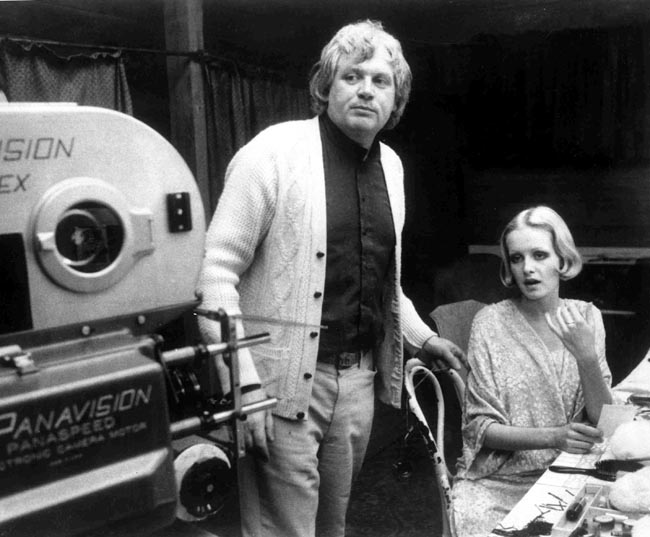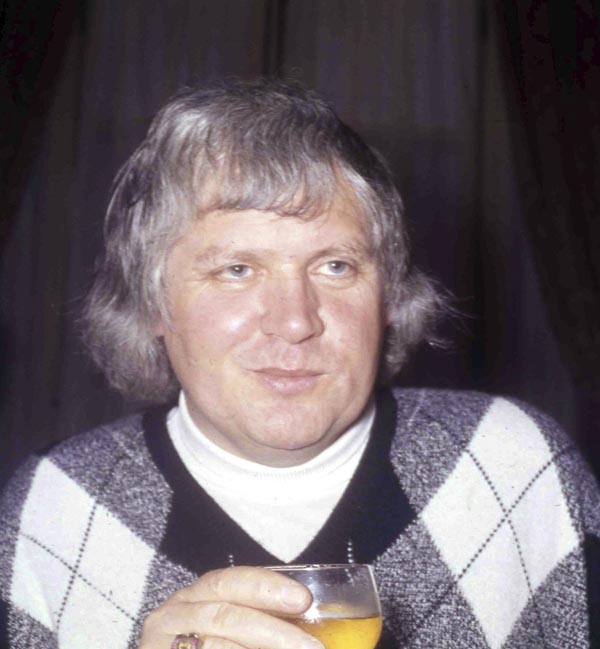PHILADELPHIA — Drawn to the outrageous and outlandish like a giant freaky moth to a flame, Ken Russell, the English filmmaker best known for his stormy adaptation of D.H. Lawrence’s “Women in Love,” and for turning a Franz Liszt biopic into an over-the-top rock opera with robot Nazis, and for the religio-sexual brouhaha of his 17th century witchcraft drama “The Devils,” died in his sleep Sunday.
Russell was 84; he recently had suffered a series of strokes, but had been planning any number of new projects.
He began his career in British television in the 1950s with shorts, docs and artists’ biographies, and had a minor big-screen hit early on with the Michael Caine Harry Palmer spy sequel, “Billion Dollar Brain” (1967). But it was Russell’s third feature, “Women in Love” (1969), that put him on the map: Glenda Jackson won an Oscar for her portrayal of a sculptress tangled in amour, and the film received Academy Award nominations for screenplay, cinematography and direction. (It was to be Russell’s only recognition from the Academy.) The naked wrestling scene between Alan Bates and Oliver Reed, young, strapping and grappling before a roaring hearth, kicked up no little controversy, too.
“The Devils” (1974), starring Vanessa Redgrave as a mad nun, was villified by church groups, banned by local communities in Britain and abroad, and remembered for its trippy mix of sexual, sado-masochistic and religious imagery.
Russell specialized in tales of mania (it’s no coincidence that his 1975 Liszt bio, starring The Who’s Roger Daltry, was called “Lisztomania”), and he was attracted to stories of lust, longing and lunatic creative types. His most successful film, box office-wise, was “Tommy” (1974), a grandiose take on The Who’s grandiose opus. In “Altered States” (1980), William Hurt stars as a Harvard professor experimenting with hallucinogens — and suffering the creepy sci-fi consequences. “The Lair of the White Worm” (1988) displayed a ridiculous penchant for phallic imagery and a super-hot Amanda Donohoe. The camp cult classic also marks one of Hugh Grant’s earliest star turns.
Russell’s biographies — interpretive rather than historical, and wildly eccentric — include films on music greats Tchaikovsky (“The Music Lovers” — 1970) and “Mahler” (1974). There was a poppish profile of “Valentino” (1977), with Rudolf Nuryev as the Silent Screen heartthrob, and there was “Gothic” (1986), Russell’s fever dream about the night Mary Shelley cooked up “Frankenstein,” with Byron and Shelley gazing on.
His 1967 television bio “Dante’s Inferno,” about Dante Gabriel Rossetti and his Pre-Raphaelite brotherhood, set the template for Russell’s later film biographies: lots of boozing and sex, ranting and raving and carrying on, and then, presto, change-o, great art.
With a ruddy complexion and a shock of white hair, Russell cut a theatrical figure. He was married thrice, had six children, and was not shy with the press.
In 2007, the octogenarian joined the cast of Britain’s hugely popular “Celebrity Big Brother,” but he quit the reality series after fighting with a fellow contestant.
No master of modesty nor restraint, Russell’s passions — for sex, for art, for pushing boundaries — made for films that were often too, too much. But his accomplishments as a director — goosing his actors to greatness, capturing the beautiful and the grotesque with cinematic deftness — make him one to remember, and to revisit.
Send questions/comments to the editors.




Success. Please wait for the page to reload. If the page does not reload within 5 seconds, please refresh the page.
Enter your email and password to access comments.
Hi, to comment on stories you must . This profile is in addition to your subscription and website login.
Already have a commenting profile? .
Invalid username/password.
Please check your email to confirm and complete your registration.
Only subscribers are eligible to post comments. Please subscribe or login first for digital access. Here’s why.
Use the form below to reset your password. When you've submitted your account email, we will send an email with a reset code.